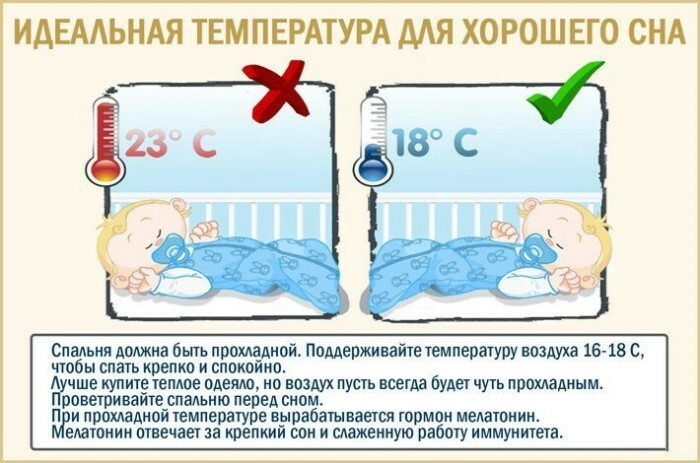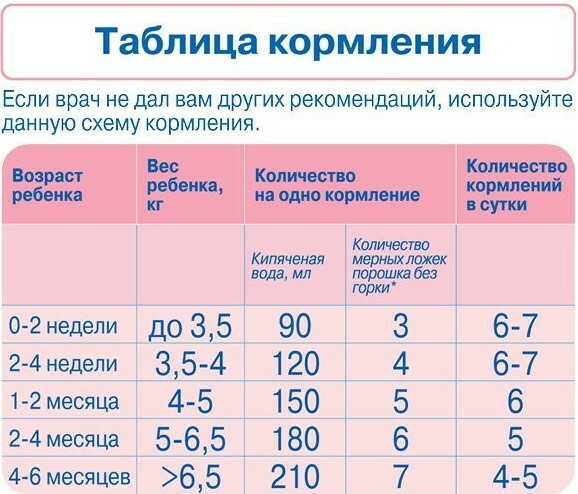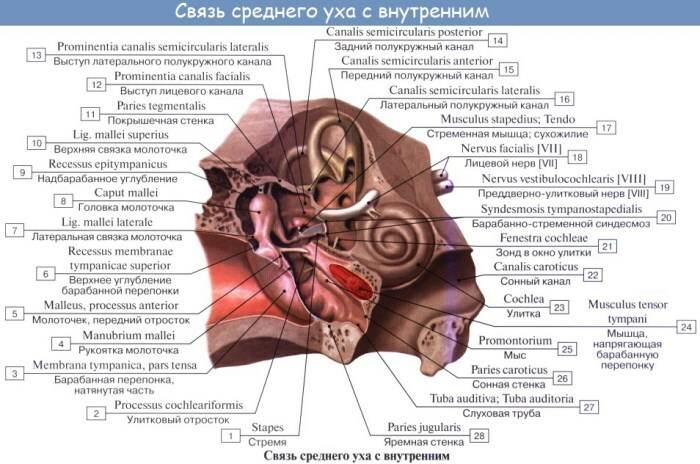Content
- Possible reasons
- Complications during childbirth and baby's needs
- Uncomfortable sleep conditions
- Hunger and thirst
- Growth leaps
- What to do
- Possible complications and tips
- Video on the causes of poor sleep in newborns
In the first month of life, the child gradually adapts to new living conditions for himself. Despite the stereotype prevailing in society that most of the time newborn sleeping, waking up only for short stages of feeding, a young mother may face disturbances in his daytime sleep, occurring at the background of a suddenly increased appetite, and considered by pediatricians to be completely normal and necessary for the establishment of maternal lactation
Possible reasons
A child does not sleep all day in the first month of life, not only because of the feeling of hunger, but also because of the need for special contact with his mother, which he needs to feel secure. In the first month of life, the newborn eats about 10 ml of breast milk per feeding, often feels hungry and can continue to doze without interrupting feeding.
Normally, a healthy newborn baby sleeps at least 15-18 hours a day:
- 6-9 hours during the day;
- 8-10 hours at night.
At the same time, the period of wakefulness in a newborn is rather small and for the first time is no more than 20 minutes of life, increasing by the end of the 1st month of life to 45 minutes. Most of this time, the baby spends next to his mother in the process of feeding, or sniffing next to her breast.
Breastfed newborns need food approximately every 1.5 hours during the day and every 3 hours at night. Children receiving artificial mixture eat less often: 1 time in 3 hours during the day and 1 time in 5 hours at night. The short time intervals between meals are explained by the fact that the volume of the newborn's stomach is still too small, and breast milk is absorbed very quickly, forcing the baby to demand food at fairly short intervals.
Lack of food for more than 3 hours during the day and more than 5 hours at night is quite dangerous for the child and can provoke the appearance of dehydration.
The concept of "sleeps little" in the opinion of pediatricians in relation to children of the 1st year of life is relative, because:
- The baby can doze, snuggling against his mother's chest, while making sucking movements.
- Tired of caring for a child and constant lack of sleep, a young mother can lose track of time, deciding that her baby practically does not sleep, but only constantly eats. When such sensations appear, experts recommend that parents check the baby's waking time using special electronic devices that allow you to accurately determine the interval of sleep and wakefulness newborn.
The need for constant nutrition in the first month of a baby's life, according to pediatricians, is due to the needs of his body, and is also necessary to establish lactation in a nursing mother. In most cases, milk comes on 3-5 days of a child's life, and its appearance is controlled endocrine system of a woman, producing it even if she refused to breastfeed feeding.
At this time, a woman needs to attach the baby to the breast as often as possible, allowing it to appear in the mammary gland. receptor - prolactin, which is responsible for the appearance of milk and the amount required to meet the needs child.
The more at this moment the newborn will attach to the breast, the more milk he will receive, and his sucking stimulates the mammary gland to produce milk, which is completely normal physiological process. In the second week of feeding (6-13 days), milk becomes late transitional, and by 14-23 days of feeding - mature. From this moment on, not the endocrine system, but the autocrine system begins to be responsible for milk production, filling the mammary glands in accordance with the needs of the child.
If, when electronically calculating the number of hours during which the child is awake and eating, it is found deviation from the norm, a young mother needs to consult a pediatrician, since such a pathology can be called from:
Complications during childbirth and baby's needs
The child does not sleep all day due to complications that have arisen during childbirth, such as hypoxia or entanglement with the umbilical cord, as well as due to the forced long separation from the mother in the postpartum period. According to pediatricians, in this case, children for their restful sleep need the constant presence of the mother, preferring to fall asleep on her chest, while making sucking movements.
Uncomfortable sleep conditions
Comfortable conditions for sleeping should be created in the newborn's room:
| Air temperature | No more than 22 degrees |
| Relative humidity | 50-60% |
| clothing | Made from natural fabrics that allow air to pass through and without elements rubbing against the body (buttons, zippers, fasteners). |
| Lack of sensory stimuli | Babies react very quickly to light and sound, so for a restful sleep of the child in the room, it is necessary to make a slight dimming to prevent direct sunlight. Noisy neighbors, barking dogs and screams from the street can interfere with the sleep of a newborn. |
| Clean diaper | Wet diapers or fecal matter accumulated in the diaper provoke discomfort and irritation of the skin, making it difficult for the baby to sleep well. |
When external stimuli appear, the newborn's sleep is disturbed, forcing him to demand the mother's breast to calm down.
Hunger and thirst
The child does not sleep all day in most cases due to a feeling of hunger or thirst. Normally, a newborn wakes up for feeding every 1.5-2 hours, and when he is full, he falls asleep again.
If the child practically does not sleep during the day, constantly asks for food and pisses little, he may not have enough food, due to the fact that:
- Mother's milk is not fat enough and lacks the necessary nutrients for the full development of a newborn, which is associated with an improper diet of a nursing mother.
- The technique of feeding the child is violated, in which, due to improper capture of the nipple into the stomach the newborn only gets air or near milk, while the more nutritious, back, remains intact.
- The baby is kept on a strict day regimen with too long a gap between feedings.

The second reason for prolonged wakefulness is the feeling of thirst. Breastfed babies have little or no need for extra fluids because they have enough breast milk. They may need water if their mother breaks her diet by eating very salty or fatty foods.
Babies who eat formula milk should receive additional water along with their meals.
Growth leaps
By the middle of the first month of a child's life, a young mother may face the moment when the baby refuses newly established sleep and feeding regimen, preferring to spend most of the day at mother's breast. This phenomenon in pediatrics is usually called "growth spikes" during which the child's need for nutrition increases sharply, which is associated with the increased pace of his physical, emotional and mental development.
Such periods occur every one and a half months of the baby's life, and during them the child becomes very restless, constantly wants to eat and:
- is capricious a lot;
- tosses and turns in cots;
- does not sleep well and wakes up frequently.
At such moments, doctors advise a young mother to leave the child alone as little as possible, being near his bed, stroking and soothing the baby. During this period, you should also ensure that the child does not overwork, because due to the abundance of emotions, his nervous system is on the verge of exhaustion.
What to do
The child does not sleep all day and constantly begs for food due to malnutrition or the need for tactile contact with the mother. Pediatricians consider it completely normal that for the first months of life, kissing the mother's breast, the child not only satisfies hunger, but also thus calms down.
In another way, according to pediatricians, during this period of life, it will not work to comfort the child, since the mother's breast provides his needs not only for nutrition, but also for protection. According to the children's gastroenterologist "SM-Doctor" Marina Yulianovna Stepanyan, before the child reaches at the age of 6 months, there is no point in distracting him and looking for mechanisms of sedation outside of breastfeeding.
Newborn children do not always eat the same way, and in order to determine whether a child is eating enough for a young mother, according to experts, one needs to focus on one's own feelings. The feeding rhythm should match the breast filling rhythm, and after feeding the breasts should feel soft and painless to the touch. How the baby suckles is also of particular importance, since the breast must be completely emptied during feeding.
According to the children's gastroenterologist "SM-Doctor" Marina Yulianovna Stepanyan, the rules of feeding over the past 15 years have undergone significant changes, and if earlier parents it was recommended to observe the feeding regimen, now the newborn should be fed on demand, since the child himself regulates his hunger, eating at every meal he needs the amount of milk.
Normal feeding takes on average 30-40 minutes, during which the phase of active sucking, with visible and audible throats, alternates with a phase of sleep and weak sucking.
The daily weight gain of a newborn should be at least 20 g per day. The restoration of birth weight should occur no later than two weeks of life, and the child should fill 6-8 diapers daily and have a chair at least 1 time per day.
Feeding rhythms for 28 days normally smoothly change from chaotic to orderly, during which the baby will spend more or less time at the breast.
If the child does not eat enough and does not gain weight well, doctors recommend a young mother to seek consultation with a breastfeeding specialist, which will allow you to establish the feeding process and ensure complete baby food.
Special attention should be paid to a nursing mother and her diet, making it only from safe for the newborn, hypoallergenic foods, without adding large amounts of salt and spices.
Special lactation teas will also help to establish breastfeeding and increase the amount of milk:
- tea Evalar BIO LactoMama;
- herbal tea No26 to enhance lactation, "Florina";

- Gaia Herbs. Support for lactation. Decaffeinated herbal tea.
If, despite the measures taken, the child continues to sleep restlessly during the day and constantly cries from hunger, and also does not gain weight well, the doctor will recommend feeding the baby with milk formula, selected in accordance with individual characteristics and needs newborn
For the first months of life, the child desperately needs maternal attention, and help him calm down and restore full sleep, according to experts, will help:
- Recreation of the conditions in which he was before the moment of birth (sleeping in a cradle, using a sling, darkness and motion sickness).
- Feeding on demand. According to experts, it is impossible to overfeed the baby with breast milk, as a result of which give the baby food it is necessary when he himself wants it (including quite often) without adhering to any regime feeding.
- Maximum contact with the mother, ensuring the child's need for protection. In this case, the maximum help and some freedom for the woman will be provided by the use of a sling.
- Sleep next to mom, promoting their closeness.
Possible complications and tips
A baby's lack of adequate sleep throughout the day may be related to hunger or anxiety in the baby and disappears after it is applied to the mother's breast. In the first month of life, children gradually adapt to new living conditions for themselves, which is why they constantly need the presence of their mother.
Lack of tactile contact, as well as adequate nutrition, can negatively affect the psychological, emotional and physiological development of the child, leading to the appearance of concomitant physiological or neurological pathologies.
According to the children's gastroenterologist "SM-Doctor" Marina Yulianovna Stepanyan, young mothers should not rely on the generally accepted concepts of "norms", because:
- Each child is unique and has its own "standards" of sleep, and the main criterion for determining them should be the child's well-being. Parents need to help their baby fall asleep not when the time is right, but when they feel the signs of their baby's fatigue.
- There cannot be too much breastfeeding in the first month of a baby's life. During this period, lactation is just being established, so the child must regulate milk production by himself and eat as much as he needs.
- A young mother needs to rest and recuperate whenever possible, therefore, one should not refuse the help of loved ones, involving his father and other relatives in caring for the child.
In the first months of his life, the child can eat as much as he needs, thereby establishing maternal lactation. A young mother should not worry about the fact that the newborn does not sleep all day and constantly eats, since the baby uses the breast not only for nutrition, but also for the appearance of a sense of calm and the implementation of tactile contact.
According to pediatricians, it is impossible to overfeed the child with mother's milk, so the mother should not limit baby food, adhere to a special regimen, or rock the child despite the absence of signs tiredness.
Video on the causes of poor sleep in newborns
Why does a newborn sleep poorly:



